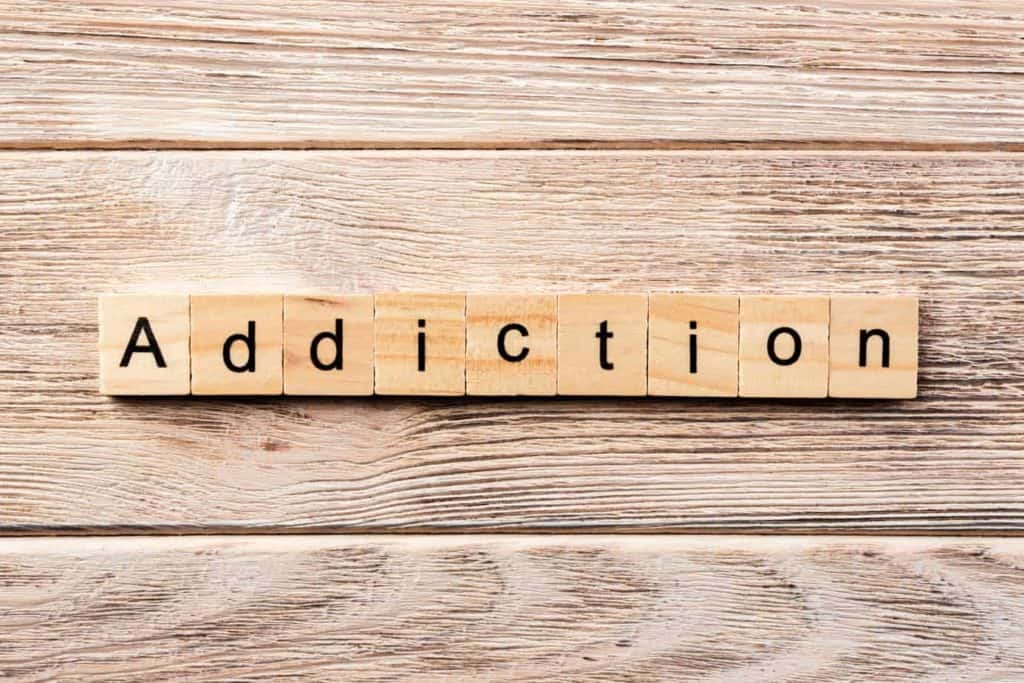What are Study Drugs?
Study drugs are prescription stimulants that people misuse to help them focus or stay awake. Most commonly known for use as study aids in educational institutions like universities. Study drugs enabling college students to remain awake throughout the night prior to major exams and study up for them. Those who take study drugs usually do so to increase their concentration and improve memory function.
These drugs are used as study aids, enabling college students to remember more of what is learned in class and do better on tests.
If you’ve been looking into the world of study drugs online, chances are you have come across ads promising easy access with no prescriptions needed – these sites may even offer free samples!
But before you order any kind of pill from an unknown source, there are some important things that everyone should know about the risks associated with taking a study drug.

Most of these medications are approved for the treatment of attention-hyperactivity/deficit disorder. These include Adderall, Ritalin, Vyvanse, Concerta, and Dexedrine. Unfortunately, when the drugs are misused, they can cause an array of dangerous side effects, including addiction. Study drugs can also be used as performance enhancers for athletes.

Get Your Life Back
Find Hope & Recovery. Get Safe Comfortable Detox, Addiction Rehab & Dual Diagnosis High-Quality Care.
Hotline(844) 597-1011Are Study Drugs Illegal?
Study drugs are not inherently illegal. However, selling or giving away prescription stimulants is illegal, as is possessing somebody else’s prescription. In addition, even people who have a prescription can abuse the drug and potentially get into some trouble. For instance, a client’s doctor may investigate why the client requires pills at a higher frequency than prescribed and may refuse to refill the prescription. The main reason is that they can get in trouble for risking their client’s health.
Four Things to Remember About Study Drugs
- Be Intentional
Reflect on the reasons you may want to use study drugs. Think through the experiences you do and don’t want to have while taking medications like Adderall or Ritalin.
2. Use Caution
Stimulants like Adderall and Ritalin are safer when prescribed by a physician and can pose additional risks when taken without a prescription. They can also cause more unwanted experiences when mixed with other drugs and alcohol. For instance, stimulants can reduce one’s awareness of the effects of alcohol, which may cause some to drink unsafe quantities.
3. Strategies To Reduce Unwanted Side Effects
If you choose to use study drugs without a prescription:
- Start slow, use smaller doses, and practice caution when using medications that have not been prescribed to you by a licensed healthcare provider. Make time to eat and stay hydrated while taking medications.
- Schedule time to sleep and recover after use
- Use with a trusted sober person nearby
- Know what medication you’re taking
4. Know When To Call For Help
If you choose to use study drugs with or without a prescription, you may experience several unwanted side effects.
Here are some side effects to watch for:
- Restlessness, nervousness, anxiety
- Headaches, dizziness, nausea
- Insomnia
- Diarrhea, constipation
- Impotence (sexual dysfunction)
- Mood changes, swings
If you or someone you know experiences any of the following symptoms, call 911 for help:
- Irregular heartbeat and chest pain
- Confusion
- Convulsions and Seizures
- Delusions and hallucinations
Some may feel like study drugs can help extend their study sessions or maintain better focus when it’s crunch time. However, while medications like Ritalin or Adderall may make some feel more alert, they may not improve test-taking or study skills.
Different Types of Study Drugs
- Adderall: A synthetic drug that stimulates the sympathetic and central nervous systems, used to treat attention deficit disorder and narcolepsy. It is a mixture of amphetamine and dextroamphetamine.
- Ritalin: A synthetic drug that stimulates the sympathetic and central nervous systems, used chiefly to improve mental activity in attention deficit disorder.
- Vyvanse: It is a central nervous system stimulant used to treat attention deficit hyperactivity disorder (ADHD) as well as moderate to severe binge eating disorder.
- Modafinil: Sold under the brand name Provigil, is a medication to treat sleepiness due to narcolepsy, shift work sleep disorder, or obstructive sleep apnea.
- Bacopa Monnieri: This is a supplement meant to improve thought processes, memory retention, and reading comprehension.
- Concerta: It is a prescription medication used to treat the symptoms of attention deficit disorder (ADD), attention deficit hyperactivity disorder (ADHD), and narcolepsy. It may be used alone or with other medications. Concerta is a central nervous system stimulant.
- Aniracetam: It’s a type of nootropic. This is a group of substances that enhance brain function. Some forms, such as caffeine, are naturally derived. Others are synthetically made into drugs.
- Creatine: A substance that is found naturally in muscle cells. It helps your muscles produce energy during heavy lifting or high-intensity exercise.
- Donepezil: Used to treat Alzheimer’s disease and is being studied to treat side effects caused by radiation therapy to the brain. It is a type of cholinesterase inhibitor.
Get Help. Get Better. Get Your Life Back.
Searching for Accredited Drug and Alcohol Rehab Centers Near You?
Even if you have failed previously and relapsed, or are in the middle of a difficult crisis, we stand ready to support you. Our trusted behavioral health specialists will not give up on you. When you feel ready or just want someone to speak to about therapy alternatives to change your life call us. Even if we cannot assist you, we will lead you to wherever you can get support. There is no obligation. Call our hotline today.
(844) 597-1011Study Drugs Affect the Brain
The drug is going to interact with the brain in its way. Typically, amphetamine-based stimulants (the generality for stimulant drugs) stimulate the neurotransmitters dopamine and norepinephrine. As these neurotransmitter levels rise, the effects are a heightened sense of focus, higher energy, extended calmness, and bliss (the euphoria is due to the stimulation in the brain’s reward center). These neurotransmitters live in the prefrontal cortex, a brain region responsible for executive functioning, which is why these increases in cognitive performance ensue. So, essentially, these study drugs activate the parts of your brain responsible for your ‘intellectual effectiveness and work to nourish the reward center, which can produce happiness and even aid the mentally ill in their struggles with depression.
Lastly, this ‘hyper-drive gear shifts the brain into then advertently affects the body. The heart rate increases, for instance, driving blood pressure upwards. The metabolism activates, breathing shortens, and your body begins to act as if experiencing a non-intensive form of exercise. Consequently, sweat can be a sign of this—as stimulants raise body temperature.
Negative Effects of Drugs
The word amphetamine—found in most common ‘study-drugs,’ should be enough to raise the alarm. The healthcare industry is selling a stimulant by definition and can interact with the brain in the same way as meth. In other words, at their very worst, study drugs can be triggers for psychosis. Those who are predisposed to this condition can take only one pill and trigger a mental illness otherwise dormant.
Beyond that, in a larger sense, study-drugs pose serious dependency problems. Not engineered for long-term use because the prolonged use of these medications alters brain chemistry. A brain ill-equipped to generate its supply of dopamine will begin to rely on these medications as a crutch, treating the pill as the neurotransmitter itself, thus working less to develop its collection. Eventually, the medication becomes a necessity for ‘normality rather than an aid to help a condition, as the client reels beneath the pressure of extreme fatigue; depression, anxiety, a lack of appetite, and reduced cognitive function and awareness. It is in this threshold, this limbo between ‘need’ and ‘want,’ that the demon of addiction can make its entrance.
Addictive Study Drugs
There is a massive amount of work yet to be done regarding these performance-enhancing drugs and addiction. For instance, Adderall and study drug addiction is not nearly addressed as, say, opioids. Rarely does it make its way into a headline—or if it does—it lurks in the shadow of the article, which speaks on the string of overdose deaths related to painkillers.
The effects of amphetamine-based medication and methylphenidate function are similar to amphetamines (known as d-amphetamine) and cocaine. These smart drugs create tolerance and then showcase characteristic withdrawal symptoms like exhaustion, depression, altered moods, psychomotor retardation, irritability, disturbed sleep patterns, increased appetite, and so forth. If you ask science: any stimulant can produce addiction because of its very nature.
Its effects on dopaminergic transmission led to the same consequences. However, the road to addiction with street drugs can be short and rapid, while performance-enhancing pills for studying may take years to have the same influence. Overdoses have occurred. And the drug can react to other substances and cause dangerous health effects.
Study Drugs Lead to Addiction
These are the things that we need to remember about study drugs leading to addiction.
- Being Organized
- You Need to be Disciplined
- Realistic
- Better Tools for Success
- Well-Rested
- Being Transparent
Risks of Using Study Drugs
In addition to the risk of addiction, ADHD medications can cause various side effects that range from mild to severe.
Side Effects of ADHD Medications
- Headache
- Restlessness
- Sleep problems
- Changes in sex drive
- Dry mouth
- Nausea
- Appetite loss
- Agitation
Side Effects of Study Drug Abuse
- Anxiety
- Insomnia
- Delusions
- Confusion
- Blurred vision
- Dizziness

Prescription stimulants can also cause death by overdose. Signs and symptoms of an amphetamine overdose include high body temperature, convulsions, and hallucinations. In addition, injecting, snorting, or taking high doses of study drugs increases the chances of an overdose.
You shouldn’t take prescription amphetamines to study before tests. Misusing study drugs can disrupt sleep, impair focus, and cause depression. In addition, each long-term side effect can degrade the performance, which defeats the purpose of taking the drugs in the first place.
First-class Facilities & Amenities
World-class High-Quality Addiction & Mental Health Rehabilitation Treatment
Rehab Centers TourRenowned Addiction Centers. Serene Private Facilities. Inpatient rehab programs vary.
Addiction Helpline(844) 597-1011Proven recovery success experience, backed by a Team w/ History of:
15+
Years of Unified Experience
100s
5-Star Reviews Across Our Centers
10K
Recovery Success Stories Across Our Network
- Low Patient to Therapist Ratio
- Onsite Medical Detox Center
- Comprehensive Dual-Diagnosis Treatment
- Complimentary Family & Alumni Programs
- Coaching, Recovery & Personal Development Events
When Drug Use Becomes Abuse
The medications experts use to improve their performance aren’t inherently wrong. They only become problems when clients abuse them rather than use them properly with the guidance of a doctor. These guidelines can help clients track whether they or their friends are using prescription stimulants safely or whether they are at risk of abuse and dependence.
Proper Use of Prescription Study Drugs
- Taking the prescribed amount at regular intervals, as instructed by a doctor
- Using the drug at a doctor’s recommendation to treat ADD, ADHD, narcolepsy, or other issues
- Taking the pills orally or as advised by a doctor
- Only using drugs explicitly prescribed for them and as prescribed
- Physical side effects match those labeled on the prescription and discussed with a doctor. If side effects become severe, the client seeks guidance from their physician
- Use of the drug assists in successful daily function, but users are not dependent on the drug
- Prescription use is part of a daily routine, so sleep schedules do not have drastic changes
- Users are better able to balance day-to-day activities and social events
- Consistent budgeting and insurance cover the cost of prescriptions
Warning Signs of Abuse And Addiction
- Taking more than the prescribed dose, or taking doses more frequently than prescribed
- Using the drug for reasons other than the defined intent
- Taking the drug in an unconventional way, such as snorting
- Using drugs without a prescription
- Users experience changes in mood or behavior, like high energy, aggression, irritability, extreme reactions, or paranoia
- Users run out of money quickly
- Physical symptoms like vomiting, diarrhea, dry mouth, dilated pupils, rapid breathing, weight loss, or decreased appetite occur and may go ignored
- Clients cannot get through the day without taking the drug, and there is a desperation to get more of the drug
- Users experience high amounts of sleep. This is often part of crashing
- Users tend to miss out on social events and other activities
Signs of study drug abuse include being excited, talkative, energetic, and hyper-focused. However, the opposite can occur as well when the individual runs out of medication. These symptoms would include fatigue, irritability, depression, and anxiety. In addition, the classic behavioral signs of addiction can be present, such as financial issues, preoccupation with getting and taking drugs, and sneaky or secretive behaviors.
World-class, Accredited, 5-Star Reviewed, Effective Addiction & Mental Health Programs. Complete Behavioral Health Inpatient Rehab, Detox plus Co-occuring Disorders Therapy.
CALL(844) 597-1011End the Addiction Pain. End the Emotional Rollercoaster. Get Your Life Back. Start Drug, Alcohol & Dual Diagnosis Mental Health Treatment Now. Get Free No-obligation Guidance by Substance Abuse Specialists Who Understand Addiction & Mental Health Recovery & Know How to Help.
Healthy Tips for Sober Success
These are the most important practices that we need to remember to obtain a healthy lifestyle.
- Balanced Diet: Eating well and making sure to get their fair share of vitamins, proteins, and other essential nutrients can help clients stay focused and energized throughout the day.

- Yoga and Meditation: It’s easy to get overwhelmed in college, making even simple tasks feel impossible. Having meditation may calm your mind to encounter these challenges with mental stability.
- Time-Management: Effective time management can mitigate stress and ensure clients have enough time for homework and studying without sacrificing social and personal time. They can try blocking out specific chunks of study time each day and adjust in advance for big projects or exams.
- Good, Regular Sleep: Lack of sleep can have tons of adverse effects on clients’ cognitive function, including their ability to focus, recall information and solve problems.
- Taking Vitamins: These vitamins are essential in maintaining healthy metabolism and brain function.
We Level Up Treatment Center provides world-class care with round-the-clock medical professionals available to help you cope. We work as an integrated team providing information about study drugs and other aspects of treatment. Make this your opportunity to reclaim your life. Call today to speak with one of our treatment specialists. Our specialists know what you are going through and will answer any of your questions.
Your call is private and confidential, and there is never any obligation.
Experience Transformative Recovery at We Level Up Treatment Centers.
See our authentic success stories. Get inspired. Get the help you deserve.
Start a New Life
Begin with a free call to an addiction & behavioral health treatment advisor. Learn more about our dual-diagnosis programs. The We Level Up Treatment Center Network delivers recovery programs that vary by each treatment facility. Call to learn more.
- Personalized Care
- Caring Accountable Staff
- World-class Amenities
- Licensed & Accredited
- Renowned w/ 100s 5-Star Reviews
We’ll Call You


